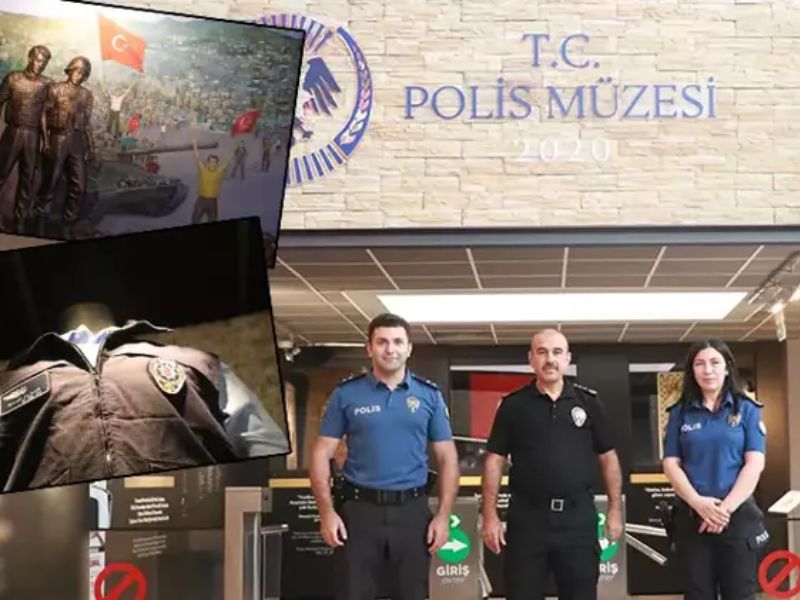Police Museum in Ankara Displays Personal Belongings of Police martyred during the July 15 Coup Attempt
Personal belongings of police officers martyred during the July 15 coup attempt are now on exhibit at the Police Museum in Ankara, which operates under the Social Services and Health Department of the General Directorate of Security.
The museum was opened on April 9, 2021, with the purpose of conveying the history, culture, development, and transformation of the Turkish Police Organization to future generations. Comprising six sections, the museum offers visitors a meaningful experience enriched with extensive contents.
Exhibit areas A, B, and C feature police uniforms, the historical chronology of the police organization, the structuring of the police organization during the Ottoman period, models of Ottoman police stations, weapons, and historical vehicles. Section D contains forensic and bomb disposal demonstration areas, along with an introduction to police dogs. Section F displays armored vehicles used from past to present.
Section E of the museum is dedicated to the personal belongings of police officers martyred during the July 15 coup attempt. Carefully preserved items include prayer beads, neckwear, and uniforms of Second Class Police Directors Zafer Koyuncu and Önder Güzel, police officer Yakup Sürücü, and special operations police officers Murat Ellik and Murat Alkan, who were martyred in a bomb attack on the Special Operations Department in Gölbaşı.
Asım Bulat, Head of the Social Services and Health Department, who was injured in the leg while resisting the coup in front of TRT (Turkish Radio and Television Corporation), indicated that a special section is dedicated to the martyrs of July 15 as the anniversary of the coup attempt approaches. Bulat stated, “Among the most important areas of our museum are those featuring works related to July 15. Memories of our colleagues with whom we served and studied are preserved here. We have the prayer beads of three colleagues, one colleague’s neckwear, and another’s uniform. We keep their memories alive here.”
“I Was the First Police Officer to Reach TRT”
Recounting his experiences during the coup attempt, Asım Bulat said he was serving as the Deputy Head at the Private Security Department at that time. “I was about to go home when I received a call indicating that a coup was underway and TRT had been seized. I went to TRT alone and found almost no one there; I was the first police officer to arrive. If I remember correctly, I was informed that four or five busloads of soldiers had come. When I tried to enter, they fired at me. Using a projection, they repeatedly ordered, ‘Leave immediately.’ Later, personnel from the Intelligence Department arrived. Around 11 p.m., there was a large explosion in the special aviation section of the special operations unit, resulting in the death of six colleagues. A second explosion also occurred in the special operations unit, killing many more colleagues.”
Bulat narrated how they engaged in the forest near TRT: “A helicopter fired at us, with bullets passing about 15-20 meters away. When it seemed hopeless, we returned to TRT’s main entrance. By then, many civilians had arrived. Together with them, we attempted to persuade some coup plotters disguised as soldiers by warning, ‘This act is illegal. If you proceed, you will be punished for attempting a coup.’ While trying to enter, they fired into the air and at the ground to scare us. I felt warmth at the back of my left leg, realizing I had been shot. Citizens took me to the hospital.”
Zafer Koyuncu’s Memory
After receiving medical treatment, Bulat went back to the police station. “The wife of the late Zafer Koyuncu kept trying to reach her husband without success. We knew Zafer was martyred, but couldn’t tell his wife. He was martyred that day, and we couldn’t tell his wife. May Allah never let our state and nation experience such an event again. After Zafer passed away, we requested a keepsake from his wife for the museum, and she gave us his prayer beads. We are exhibiting them here. There is no admission fee to visit our museum, and those interested can also visit virtually at polismuzesi.com,” he said.
